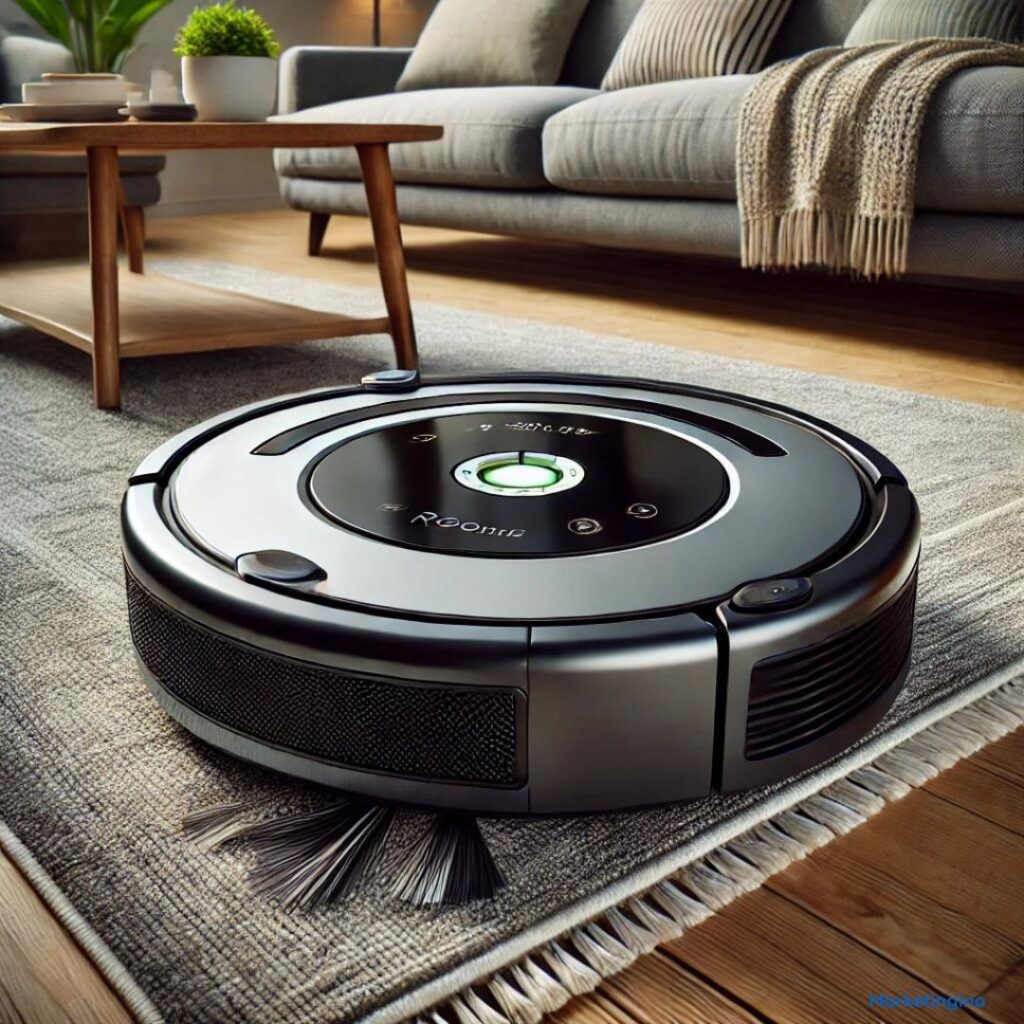iRobot Corporation, established in 1990, is a pioneer in the development of robotic technologies, particularly known for its Roomba vacuum cleaner. The company has leveraged advanced technology and innovative design to position itself as a leader in the home robotics market. This article explores the key components of iRobot’s marketing strategy, examining how the brand maintains its dominant position and continues to captivate consumers globally.
Brand Identity and Innovation
Emphasizing Technological Leadership
iRobot’s marketing strategy heavily emphasizes its technological leadership in the robotics industry. The brand highlights its roots in MIT’s Artificial Intelligence Lab and its ongoing commitment to innovation. By showcasing its advanced engineering capabilities and pioneering achievements, iRobot positions itself as a forward-thinking and cutting-edge company.
User-Centric Design
iRobot places a strong emphasis on user-centric design, ensuring its products are both functional and easy to use. This approach is evident in the intuitive design of the Roomba, which simplifies the cleaning process for users. By focusing on practical benefits and ease of use, iRobot appeals to a broad range of consumers, from tech enthusiasts to busy households.
Product Diversification and Development
Expanding Product Lines
iRobot has strategically diversified its product offerings to cater to various aspects of home cleaning and automation. In addition to the Roomba vacuum cleaners, the company offers products like the Braava mopping robot, the Terra robotic lawn mower, and the Root coding robot for educational purposes. This diversification allows iRobot to tap into different segments of the smart home market and reduce dependency on a single product line.
Continuous Improvement and Innovation
Innovation is at the core of iRobot’s product strategy. The company continually improves its products with new features and technologies, such as advanced sensors, mapping capabilities, and connectivity with smart home systems. Regular updates and new product launches keep the brand relevant and maintain consumer interest.
Digital Marketing and E-commerce
Strong Online Presence
iRobot has effectively leveraged digital marketing to reach a global audience. The brand’s website offers a comprehensive and user-friendly experience, featuring detailed product information, comparison tools, and customer reviews. The website also includes educational content about robotic technology and its benefits, reinforcing iRobot’s expertise and thought leadership.
E-commerce and Direct Sales
iRobot places a significant emphasis on e-commerce and direct sales through its website and major online retailers like Amazon. The company’s online sales platform provides a seamless purchasing experience, with options for product customization and accessories. This direct-to-consumer model allows iRobot to maintain control over the customer experience and build a direct relationship with its buyers.
Social Media Engagement and Content Marketing
Active Social Media Presence
iRobot maintains a robust presence on social media platforms like Facebook, Instagram, Twitter, and YouTube. The brand uses these channels to showcase new products, share user testimonials, and provide tips for using its robots effectively. Interactive posts and customer engagement campaigns help build a community around the brand and foster loyalty.
Content Marketing and Educational Initiatives
iRobot excels in content marketing, providing valuable information about robotics and smart home technology. The brand’s blog and video content cover a range of topics, from product tutorials to insights into the future of robotics. Educational initiatives, such as partnerships with schools and coding programs for children, further reinforce iRobot’s commitment to advancing technology and education.
Experiential Marketing and Customer Engagement
Product Demonstrations and Events
Experiential marketing is a crucial component of iRobot’s strategy. The brand frequently participates in trade shows, tech expos, and retail events where potential customers can see product demonstrations and experience the technology firsthand. These events provide an opportunity for direct interaction with the products, enhancing consumer understanding and interest.
Customer Feedback and Community Building
iRobot actively seeks customer feedback through surveys, reviews, and social media interactions. This feedback loop helps the company understand consumer needs and preferences, guiding product development and marketing efforts. Building a community of satisfied customers who share their experiences and tips online also helps spread positive word-of-mouth and reinforces brand loyalty.
Sustainability and Corporate Responsibility
Commitment to Sustainability
Sustainability is an integral part of iRobot’s marketing strategy. The company emphasizes its efforts to reduce environmental impact through responsible manufacturing practices, recycling programs, and energy-efficient products. By communicating its commitment to sustainability, iRobot appeals to environmentally conscious consumers and differentiates itself from competitors.
Corporate Social Responsibility
iRobot engages in various corporate social responsibility initiatives, supporting STEM education, community development, and disaster relief efforts. The company’s philanthropic activities, such as donating robots to help in disaster recovery and supporting educational programs, enhance its brand image and demonstrate a commitment to social good.
Strategic Partnerships and Collaborations
Strategic Alliances
iRobot’s strategic partnerships play a significant role in its marketing strategy. Collaborations with other technology companies, such as Google for smart home integration, enhance the functionality and appeal of iRobot products. These alliances allow iRobot to offer more comprehensive solutions and stay ahead of technological trends.
Influencer and Media Partnerships
Influencer marketing and media partnerships are effective tools in iRobot’s marketing arsenal. Collaborations with tech influencers, home improvement experts, and lifestyle bloggers help iRobot reach new audiences and generate authentic endorsements. Media coverage in technology and lifestyle publications also boosts the brand’s visibility and credibility.
iRobot’s marketing strategy is a masterful blend of technological leadership, product innovation, digital engagement, experiential marketing, sustainability, and strategic partnerships. By emphasizing its commitment to advancing robotics, continuously evolving its product offerings, leveraging digital platforms, creating memorable brand experiences, and engaging in social responsibility, iRobot has successfully maintained its status as a leader in the home robotics market. As the industry evolves, iRobot’s multifaceted approach will undoubtedly serve as a benchmark for other brands seeking to navigate the complexities of the modern market.




